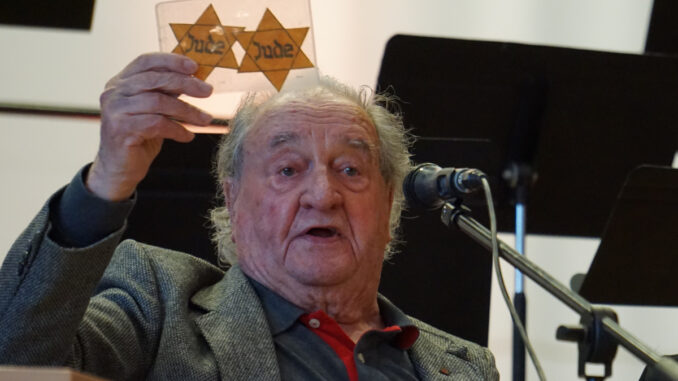
Ivar Buterfas-Frankenthal (*1933) survived the Holocaust. The Hamburg native was born as the son of a Jew. Decades after Allied bombers began destroying Hamburg in July 1943, he campaigned to keep the destroyed church tower of St. Nikolai as a central World War II Memorial in Hamburg.
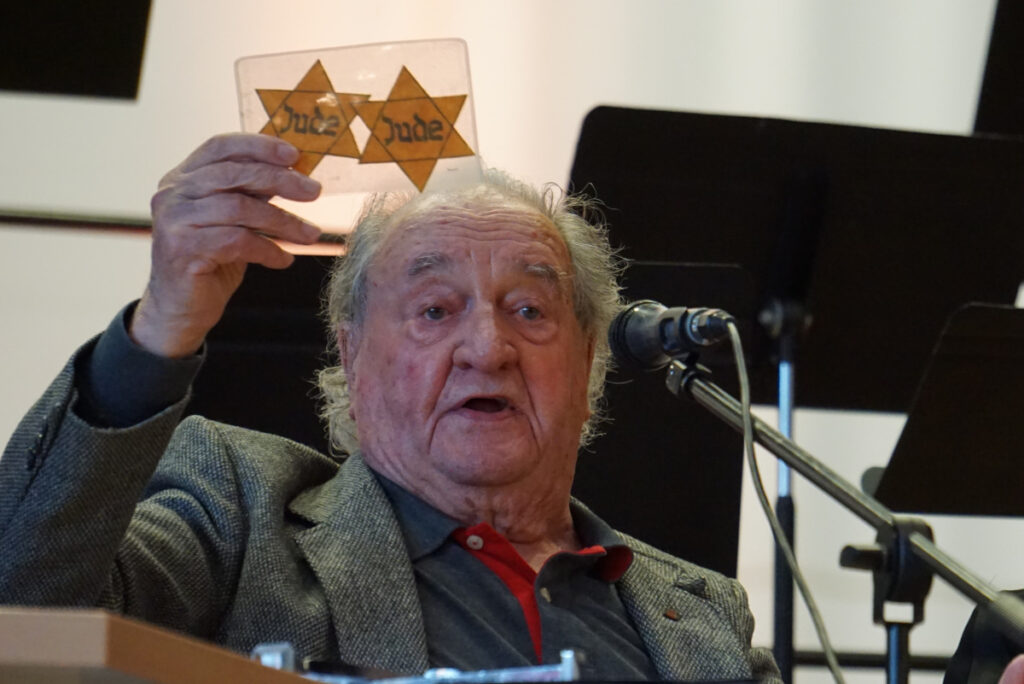
Memories. Ivar Buterfas-Frankenthal has many of them. Sometimes they are traumatic. „I never wanted to take revenge,“ says the 90-year-old, who was born in Hamburg in 1933. His mother was a Christian. His father was a Jew. In the first grade, he was summoned to the schoolyard by the principal and, with the help of all other students, chased from the yard as a „Judenbengel.“ Days later, the same 10 year old children incited by Nazi ideology tried to set the 6-year-old on fire. Even today, he says, he has nightmares because of that. „But I also remember happy moments. There’s my older brother Frank, who taught me in the underground. There’s also the memory of my mother stroking my hair.“
In the face of new right-wing parties and attacks on asylum seekers in Germany, Buterfas-Frankenthal has never stopped admonishing: „Today we are all responsible. Go vote and put your cross in the right place. Germany is a wonderful country today. Let it not be taken away from us.“
19 years without a country
Buterfas-Frankenthal continued to suffer injustice long after the end of the Holocaust. Also his citizenship had been revoked after the Nazis had pushed ahead with the systematic genocide of the Jews at the Wannsee Conference on January 20, 1942. Buterfas-Frankenthal made efforts to reintegrate in 1946. But het was put off again and again. Finally in 1961, the German Federal Republic granted him his citizenship. „In 2002, the former official from the German police in Hamburg phoned me to apologize,“ Buterfas-Frankenthal recalls, „I didn’t accept it.“
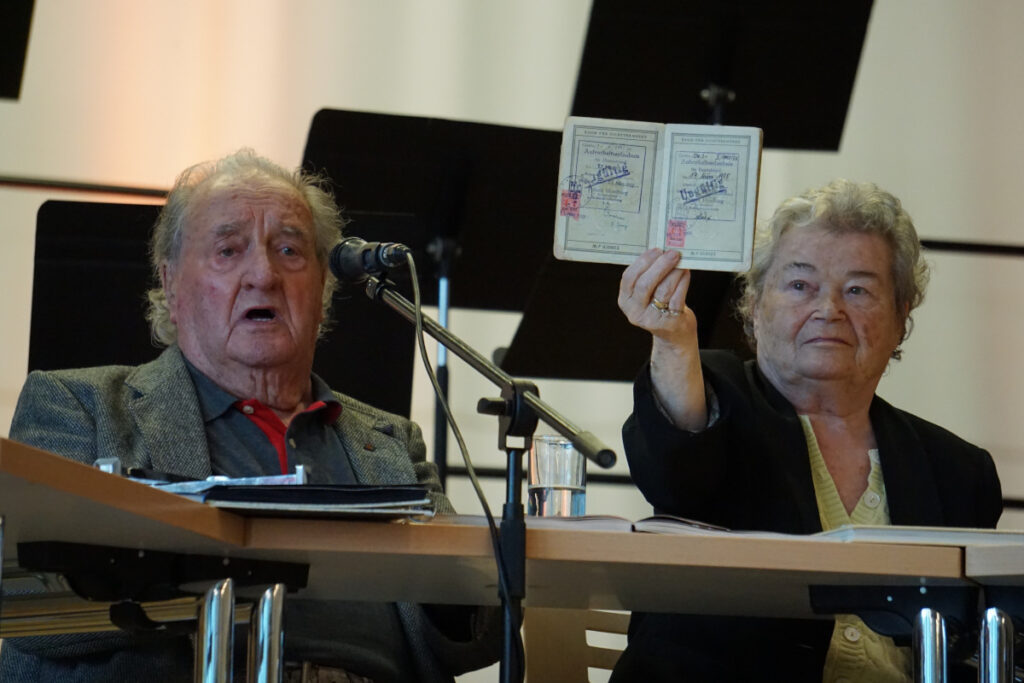
Patron of the St. Nikolai Memorial
In July 1943, Hamburg was largely destroyed by Allied bombers during their Operation Gomorrha. „The church tower of St. Nikolai served as a landmark for the pilots,“ Buterfas-Frankenthal explains. In 1987, he and other Hamburg citizens founded the „Save St. Nikolai“ association. Today, the ruined tower is Hamburg’s central memorial against the war.
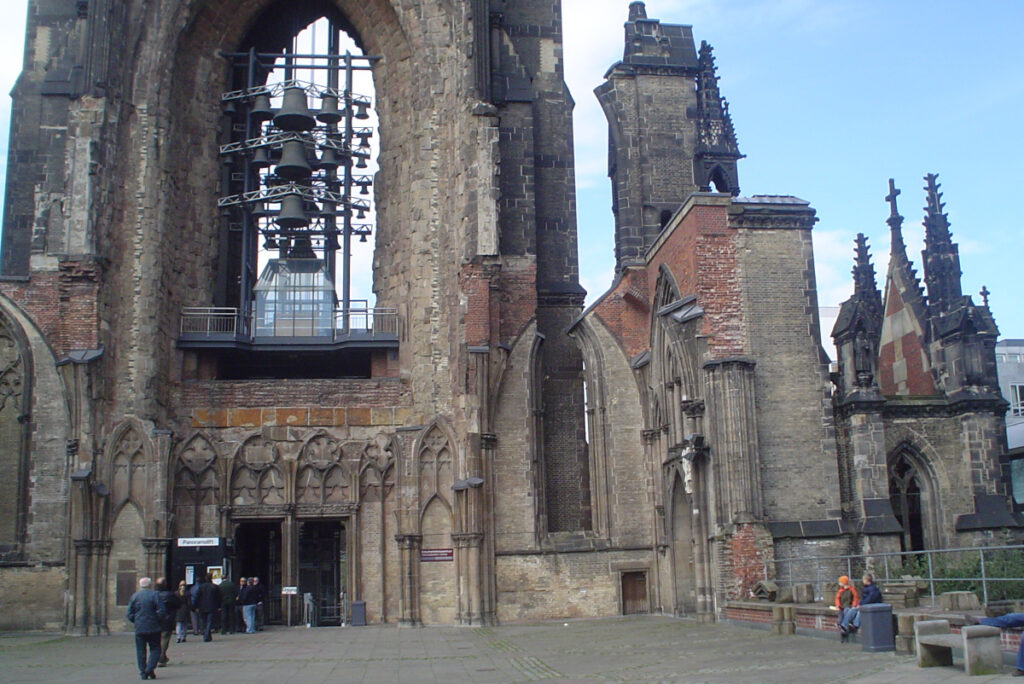
To this day, Buterfas-Frankenthal and his wife keep the German culture of remembrance alive. The couple has been married for 67 years. „Everything I am today I owe to her,“ says the 90-year-old. For decades, like many other contemporary witnesses, they have given lectures about Nazi victims and the crimes committed by Germans during the National Socialist era. „But we contemporary witnesses are becoming fewer and fewer.“
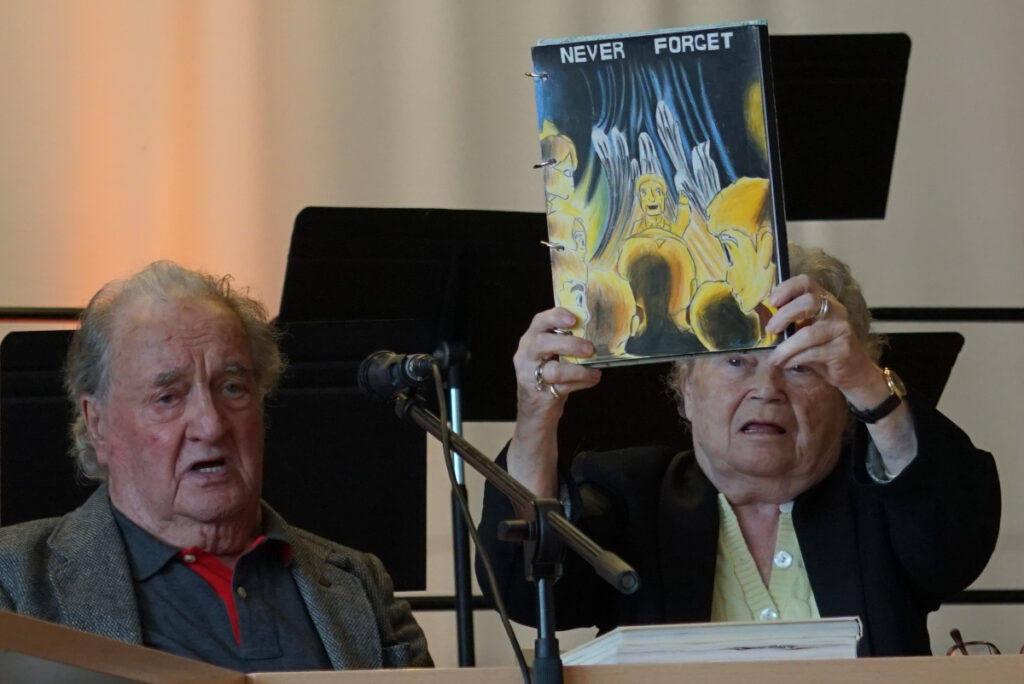
„It will never be as beautiful as it is today,“ Buterfas-Frankenthal explains in retrospect. It’s worth to preserve what we have. We are all responsible.“
(jcp)
